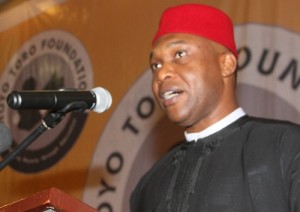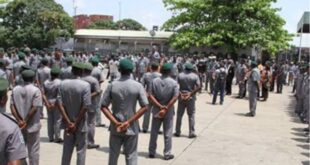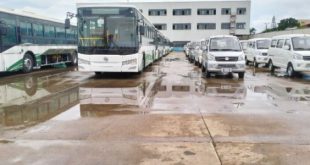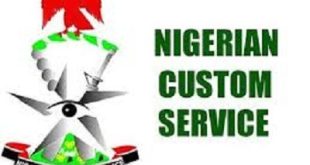
Shrinking prices of crude oil, which has debilitated the naira by about 40 per cent since June last year, has compelled airlines that ply international routes to adjust their fares by between 40 per cent and 100 per cent, New Telegraph has learnt.
The naira, which traded at the official market at N155 to $1, was devalued to N168 per dollar last November, while the rate at interbank market, where banks buy from one another to cover their positions, moved from N160 to N204.25 per dollar at the start of trading yesterday before settling at N202.50 per dollar.

Investigation revealed that some travel agencies and airline offices at the Murtala Muhammed International Airport, Lagos, showed that fares on international routes are quoted in dollars. While the dollar has remained stable, the naira has continued to slide to current exchange rate at N210 to $1 at the parallel market.
Consequently, Nigerians are paying more for journey to destinations such as Johannesburg, Nairobi, Addis Ababa, Europe, the United States and Middle East. For instance, the least fare on booking made for March 15, 2015 to Addis Ababa, Ethiopia on Ethiopian Airways is N231, 715 as against about N128, 000, being the cost of the same trip last year. This fare is regarded as the minimum as fares are charged based on different parameters.

For business class seats, the fares could be as high as N800, 000. Despite high fares, Nigerians travel in luxury, making the Nigerian route one of the most lucrative in the world. Fares to Nairobi have equally gone up to N184, 990 for economy class. The same class ticket cost less than that last year.
Premium airlines such as British Airways, Virgin Atlantic, Air France, KLM, Delta, Emirates and Qatar Airways plying European and Middle East routes, have also jacked up their fares. For instance, a flight from the Murtala Muhammed International Airport, Lagos to the Heathrow Airport in London costs about N810,000 for a business class ticket, while the same ticket from Accra, Ghana, which is about the same distance, costs N720,000, which is about N96,000 less than the fare from Nigeria.
A flight from Lagos to London will take six hours and 35 minutes on the average, while a flight from Accra to London will last for about six hours and 20 minutes, a difference of about 15 minutes. For instance, Virgin Atlantic fares from Lagos to London have also gone up. For passengers who are booked for March 2 for an economy class seat, the least fare is N245, 000 compared with N178, 354 that a passenger (name withheld) paid same period last year.
Virgin Atlantic charges Nigerians $4,173 and $2,956 for its Lagos-London premium economy and economy tickets respectively; while fliers from Accra pay $1,826 and $1,563 for the same categories of tickets on Accra-London haul. Lufthansa’s rate for Abuja-Frankfurt Economy class ticket is $2,761, whereas Accra-Frankfurt on the same class of ticket is $1,550. For KLM, an economy ticket from Abuja to Amsterdam costs $3,502, while the same class of ticket from Accra to Amsterdam cost $2,181. A travel management expert, Mrs. Uloma Egbuna, attributed the hike in air fares to the depreciation of the naira, saying while the dollar remains stable; the naira has continued to slide to an all-time low.
In that situation, Egbuna said Nigerian travelers would continue to chase fewer dollars with plenty of naira, which she said, is not easy to come by. Before now, stakeholders had accused foreign airlines of fare disparity resulting in Nigerians paying higher fares than passengers in Ghana.
A top official in the Federal Airports Authority of Nigeria (FAAN) lamented that despite the depreciation of the country’s currency, foreign airlines have taken advantage of the country’s lack of national carrier to impose astronomical fares on Nigerians.
Minister of Aviation, Mr. Osita Chidoka, said that the issue of price fixing by international airline operators and the apparent disparity in ticket costs levied on Nigerians compared with that of other continental destinations would be addressed.
Experts noted that the major causes of the disparity in the fares were multiple taxes that airline operators had to pay in the country, high operational costs and inadequate infrastructure. An airline source, who pleaded anonymity because he was not authorised to speak to the media on the issue, said if air fares could be as high as this in low season, he imagined what it could be in summer when a lot of people travel.
Low season in aviation is a period when demand for air travel is low. It is usually winter period. Airlines try as much as possible to reduce fares because of low traffic. Meanwhile, deploying for the first time a ‘circuitbreaker’ agreed among themselves last month, leading banks in Lagos yesterday halted trade after the naira dropped more than two per cent to close weaker at N202.50, an all-time closing low.
The rout has been driven by the combination of a tumbling oil price and a rise in political risk, which worsened last Saturday when authorities postponed the February 14 presidential election to April. “There is panic because of the postponement of elections. Uncertainty caused by the delay has been priced in the value of the naira and it is causing further depreciating of the currency,” one dealer said.
 MMS PLUS NG – Maritime, Aviation, Business, Oil and Gas News Online Newspaper with coverage in Maritime, Oil and Gas, Aviation, Power and Energy as well as Financial News
MMS PLUS NG – Maritime, Aviation, Business, Oil and Gas News Online Newspaper with coverage in Maritime, Oil and Gas, Aviation, Power and Energy as well as Financial News









